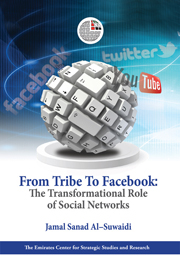Book contents
- Frontmatter
- Contents
- Acknowledgments
- Introduction
- Keywords
- Scope of the Study
- Previous Studies
- Social Networks: Concept and Role
- Statistical Indicators of Main Social Networks
- The Social Networking Age
- Data-entry Potential of Social Networks
- Impact of Social Networks
- Prospects for the Relationship between Traditional Media and Social Networks
- Legal Problems Associated with the Use of Social Networks
- Social Networks: Future Prospects
- Conclusion: Various Future Prospects
- Notes
- Bibliography
- Index
Legal Problems Associated with the Use of Social Networks
Published online by Cambridge University Press: 05 September 2014
- Frontmatter
- Contents
- Acknowledgments
- Introduction
- Keywords
- Scope of the Study
- Previous Studies
- Social Networks: Concept and Role
- Statistical Indicators of Main Social Networks
- The Social Networking Age
- Data-entry Potential of Social Networks
- Impact of Social Networks
- Prospects for the Relationship between Traditional Media and Social Networks
- Legal Problems Associated with the Use of Social Networks
- Social Networks: Future Prospects
- Conclusion: Various Future Prospects
- Notes
- Bibliography
- Index
Summary
Although social networks have provided many benefits to users, they have also produced many legal conundrums resulting from improper use, including the problem of determining criminal liability for electronic copyright violations committed via social networking pages. Should the Internet Service Provider (ISP) be held responsible owing to the fact that it palys a key role in managing a website's information system on the Internet or should it be treated as a mere manager of technical communication services, which has nothing to do with the content posted on the website. Or is the user responsible in his capacity as the website's editor and the one who prepares material and controls the data that is disseminated via social networks? The two liabilities might become one when the website creator is also the content editor. In other words, it will be difficult to determine where the legal responsibility of social networks ends and the content owner's responsibility begins. In general, the laws governing the use of the Internet remain unclear and the question is still ‘what are the mechanisms that ensure effective application of those rules?’ There is no doubt that there have been many laws introduced in various countries to regulate online content and identify new types of crimes created by this technology. Researchers argue that the prevailing trend in jurisprudence worldwide is that the criminal liability for crimes of publication falls primarily on the managing editor or publisher, and that they are responsible for crimes committed by bloggers, since they are entrusted with reviewing the information posted on social networks before posting them on web pages.
- Type
- Chapter
- Information
- From Tribe to FacebookThe Transformational Role of Social Media, pp. 104 - 109Publisher: Emirates Center for Strategic Studies and ResearchPrint publication year: 2013



